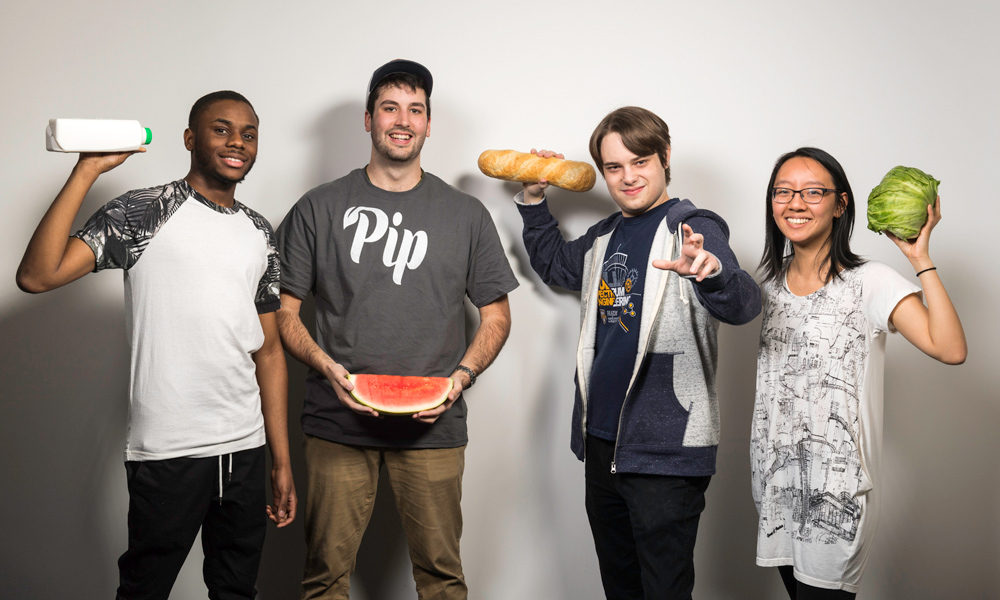
Students design voice-activated app to reduce food waste
Pip, an app developed by a team of graduating seniors in the Digital Media Studies Program, will let users check their fridge or freezer wherever they are using only their voice.
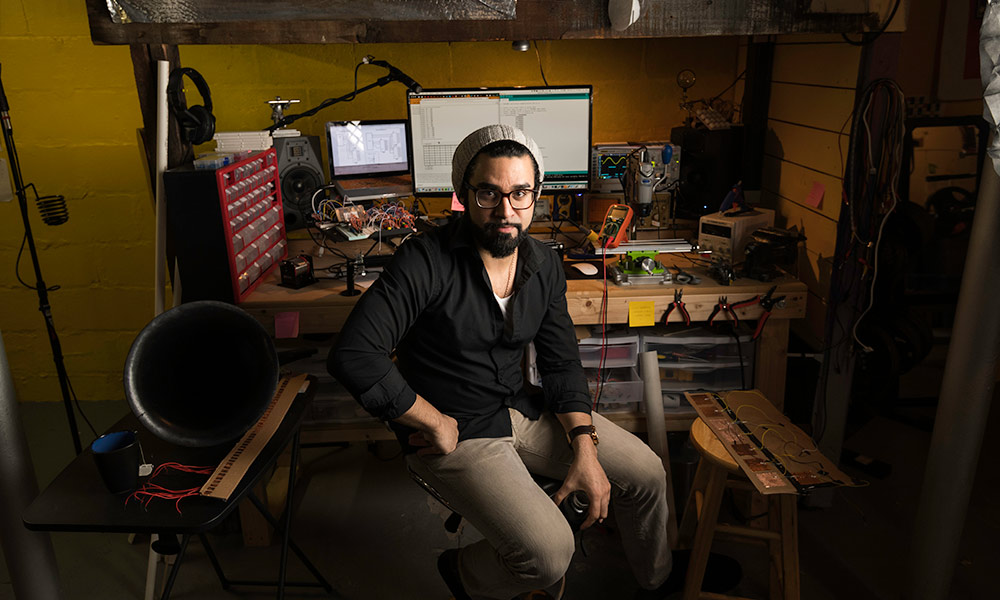
Engineering a better guitar
As a classical guitarist, Juan Estrella ’18 chafes at the constraints traditional instruments place on artistic expression. As an engineer, he is attempting to create a “new electronic musical interface” that would set a new standard for instrument design.

Student engineers help kids with disabilities walk, play with peers
For young children with developmental disabilities, learning to walk can be a long-term process. An inexpensive, “hybrid” walker designed by a team of biomedical engineering seniors can help.
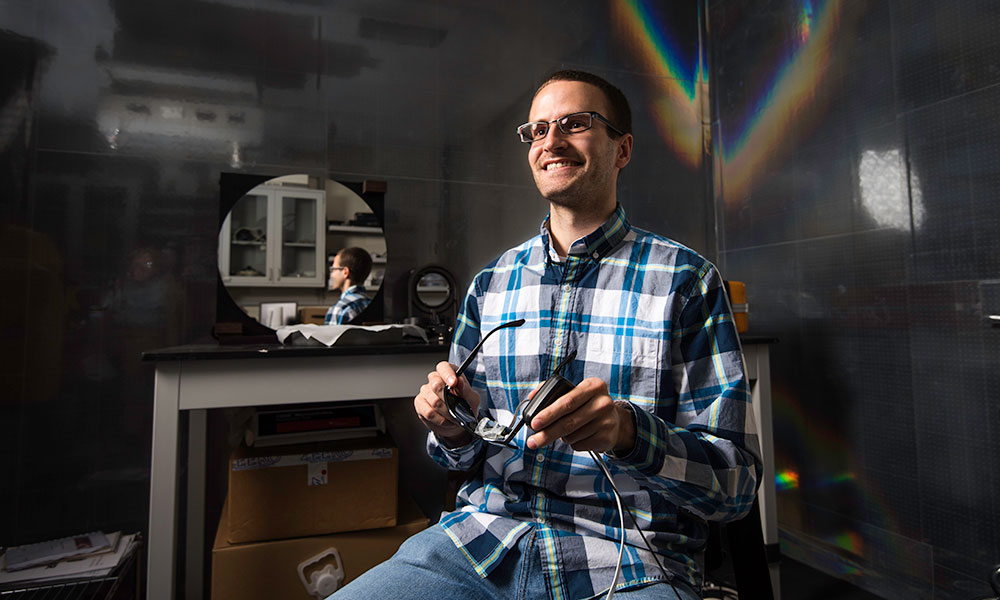
New method eliminates guesswork when lenses go freeform
Lenses and mirrors with freeform rather than symmetric can lead to optical devices that are more effective than ever before. A new design method would eliminate the expensive trail-and-error needed to work with freeform optics.
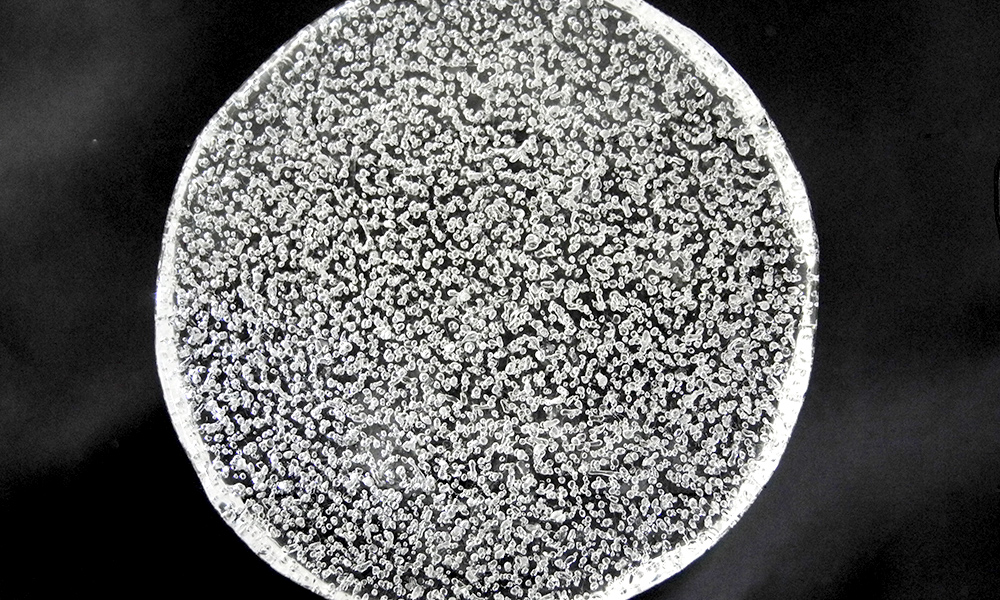
Why does ice make that sound?
What began as a “silly pastime” of tossing ice chunks down a borehole in Taylor Glacier, Antarctica, has led to a video with more than 8 million views and a collaboration between an acoustics expert and a climate scientist.

From glaciers to great lakes: 8 big questions Rochester researchers are asking about our planet
Sunday, April 22, marks the 48th celebration of Earth Day, and University of Rochester researchers and scientists from across schools and disciplines are working to learn and discover how to make our world ever better.

Tiny microenvironments hold clues to ocean nitrogen cycle
A new Rochester study shows that nitrogen-feeding organisms exist all over the deep ocean, and not just in large oxygen-depleted “dead zones,” changing the way we think about the delicate nitrogen cycle.
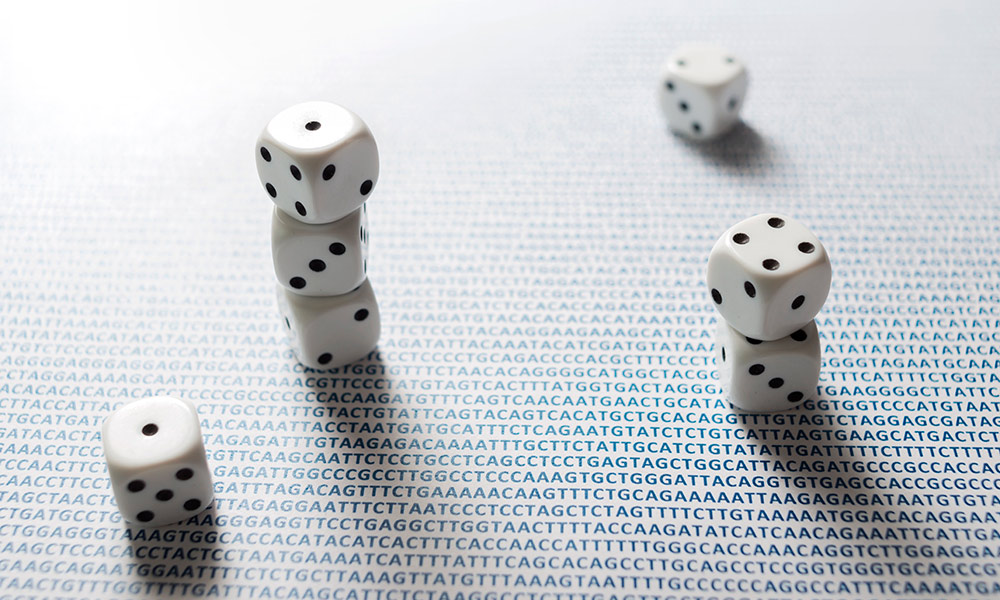
Scientists discover gene controlling genetic recombination rates
Some species have evolved to display far more genetic crossover than others—and scientists have discovered a gene in fruit flies that is responsible for the evolution of these recombination rates.
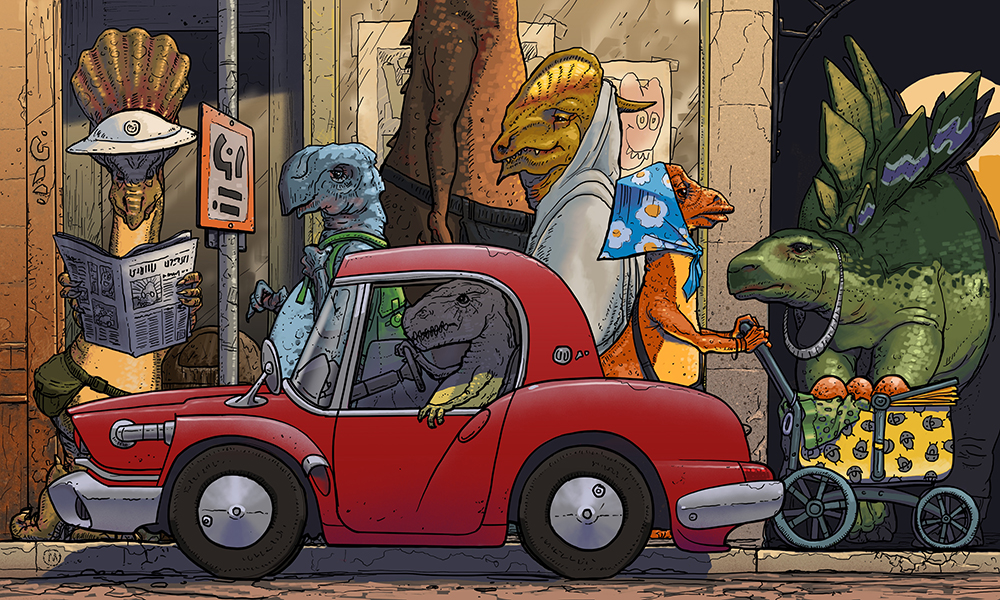
We think we’re the first advanced earthlings—but how do we really know?
Imagine if, many millions of years ago, dinosaurs drove cars through cities of mile-high buildings. A preposterous idea, right? In a compelling thought experiment, professor of physics and astronomy Adam Frank and director of the NASA Goddard Institute for Space Studies Gavin Schmidt wonder how we would truly know if there were a past civilization so advanced that it left little or no trace of its impact on the planet.
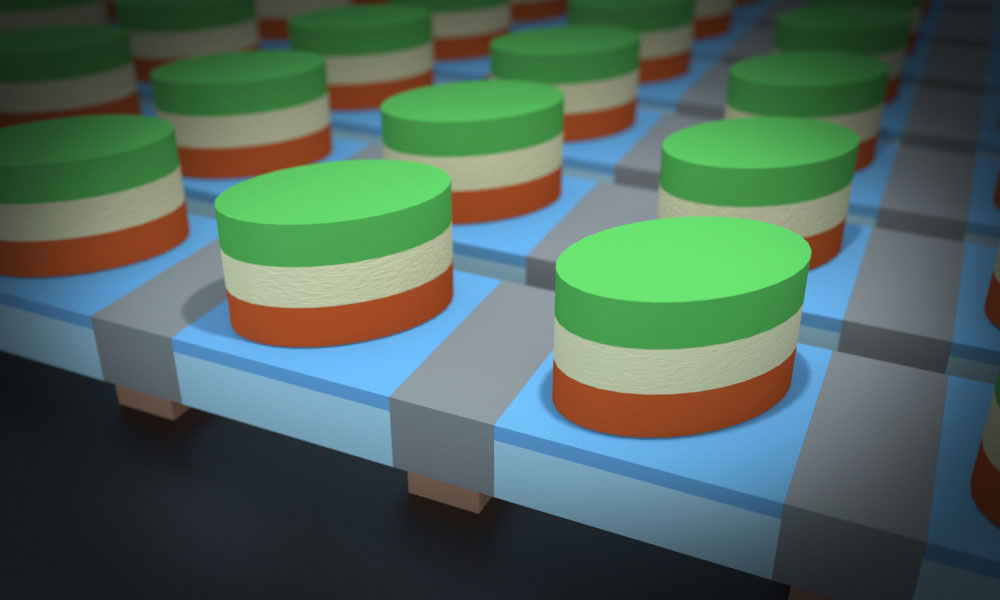
New computing device would let microprocessors go ‘all out’
Researcher Mohammad Kazemi has proposed an entirely new concept for computer architecture to overcome the problems of heat transfer inherent in traditional microprocessors.
